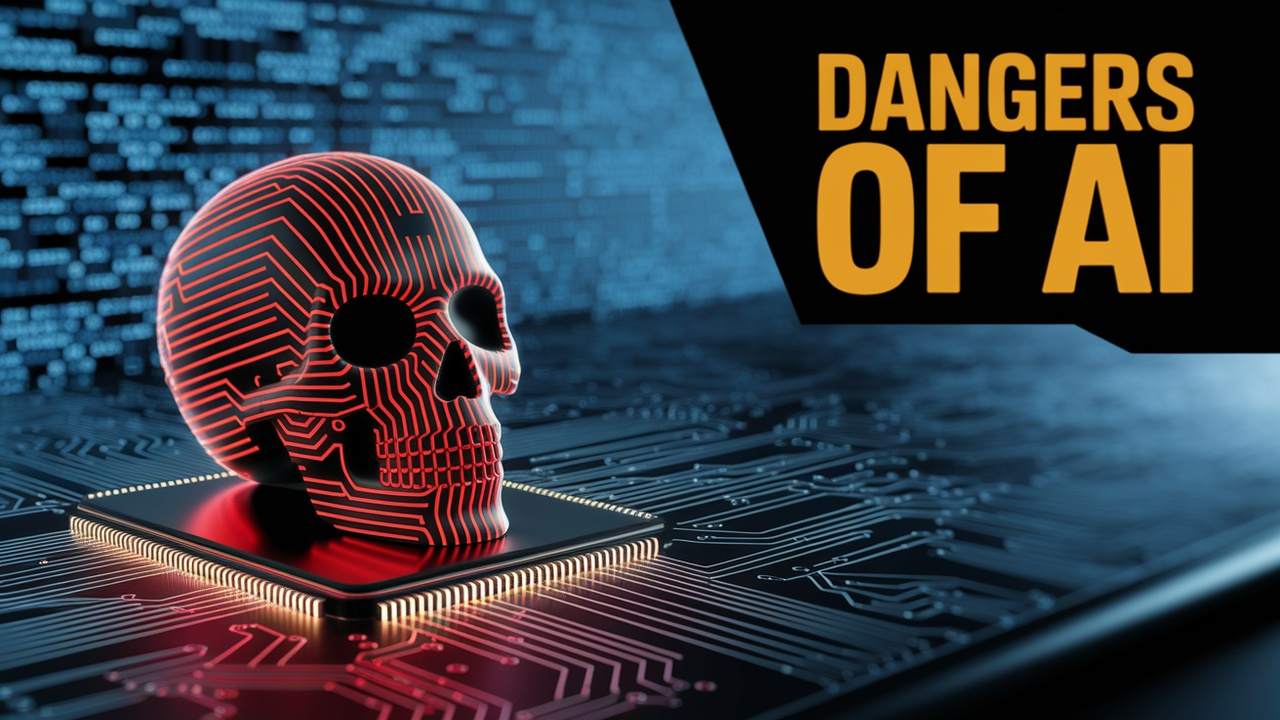Exploring the Dark Side of AI: Dangers and Risks to Consider
Artificial Intelligence (AI) has emerged as a transformative technology with the potential to revolutionize various industries and aspects of society. While the advancements in AI offer unprecedented opportunities for innovation and efficiency, there is a growing recognition of the dark side of this technology. Ethical concerns, potential risks, and implications for privacy and security have raised important questions about the responsible development and deployment of AI systems. In this article, we delve into the dangers and risks associated with AI, exploring the ethical, social, and economic implications to consider in the pursuit of harnessing the power of AI for the greater good.
Introduction to AI and Its Growing Influence
Artificial Intelligence (AI) refers to the simulation of human intelligence processes by machines, especially computer systems. As AI continues to advance, its influence spans across various industries and sectors, revolutionizing the way we live and work.
Definition and Overview of Artificial Intelligence
AI encompasses a wide range of technologies, from machine learning to natural language processing, enabling machines to learn from experience, adapt to new inputs, and perform human-like tasks. Its potential applications are vast, from healthcare to finance and beyond.
Applications of AI in Various Sectors
AI has found its way into diverse sectors such as healthcare, finance, transportation, and more. From predictive analytics in healthcare to algorithmic trading in finance, AI is reshaping industries, improving efficiency, and driving innovation.
Ethical Concerns Surrounding AI Development
While AI offers promising advancements, ethical considerations have come to the forefront, raising concerns about biases in algorithms and the ethical implications of autonomous AI systems.
Biases and Discrimination in AI Algorithms
AI algorithms are only as unbiased as the data they are trained on, leading to concerns about perpetuating societal biases and discrimination. Addressing bias in AI algorithms is crucial to ensure fairness and equity.
Ethical Considerations in Autonomous AI Systems
The development of autonomous AI systems, such as self-driving cars and drones, raises ethical dilemmas surrounding decision-making capabilities and accountability. Ensuring that AI systems act ethically and align with human values is paramount.
Potential Risks and Dangers of AI Implementation
As AI systems become more integrated into our daily lives, the risks of cybersecurity threats and unintended consequences of AI decision-making pose significant challenges that need to be addressed.
Threats to Cybersecurity and Data Privacy
The interconnected nature of AI systems creates vulnerabilities that can be exploited by malicious actors, posing threats to cybersecurity and data privacy. Safeguarding AI systems against cyber attacks is crucial in protecting sensitive information.
Unintended Consequences of AI Decision-making
AI decision-making processes, while efficient, can sometimes lead to unintended consequences that may have far-reaching implications. Understanding and mitigating these risks is essential to ensure that AI systems operate responsibly and ethically.
Impact of AI on Privacy and Data Security
The proliferation of AI technologies raises concerns about privacy and data security, highlighting the need to address challenges in protecting personal data and mitigating risks of data breaches.
Challenges in Protecting Personal Data in AI Systems
AI systems often rely on vast amounts of personal data to function effectively, raising concerns about data privacy and the need for robust data protection measures. Balancing data utility with privacy rights is a key challenge in AI development.
Risks of Data Breaches and Unauthorized Access
The interconnected nature of AI systems increases the risk of data breaches and unauthorized access to sensitive information. Implementing strong security measures and protocols is essential to prevent data breaches and protect user privacy.
# Exploring the Dark Side of AI: Dangers and Risks to Consider
## Social and Economic Implications of AI Advancements
### Displacement of Jobs and Workforce Automation
AI advancements have sparked concerns about the displacement of jobs and the automation of tasks previously done by humans. As AI technology evolves, it has the potential to replace certain roles, leading to job losses and shifts in the workforce landscape.
### Inequality and Access Disparities in AI Technologies
The rise of AI technologies brings with it the risk of deepening existing inequalities. Access to AI tools and resources may be unevenly distributed, creating disparities in opportunities and outcomes across different groups in society.
## Safeguards and Regulations to Mitigate AI Risks
### Government Policies and Industry Standards for AI Governance
To address the risks associated with AI, governments and industries are working to establish policies and standards that govern the development and deployment of AI technologies. These regulations aim to ensure that AI systems are used ethically and responsibly.
### Ethical Frameworks and Best Practices for Responsible AI Development
Ethical frameworks and best practices play a crucial role in guiding the responsible development of AI. By adhering to ethical principles, developers can create AI systems that prioritize fairness, transparency, and accountability.
The Role of Transparency and Accountability in AI Innovation
### Importance of Transparency in AI Decision-making Processes
Transparency in AI decision-making processes is essential for building trust and understanding how AI systems reach conclusions. By shedding light on the inner workings of AI algorithms, organizations can enhance accountability and demonstrate a commitment to ethical AI.
### Accountability Mechanisms for AI Systems and their Developers
Establishing accountability mechanisms for AI systems and their developers is key to ensuring that responsible AI practices are upheld. When issues arise, clear lines of accountability help identify who is responsible and facilitate corrective actions to address potential harms.As we continue to witness the rapid evolution of AI technologies, it is imperative that we remain vigilant in addressing the challenges and risks they present. By fostering a culture of transparency, accountability, and ethical considerations in AI development, we can strive towards maximizing the benefits of AI innovation while minimizing its potential harms. With concerted efforts towards responsible AI governance and regulation, we can navigate the complexities of the dark side of AI, ensuring a more equitable and sustainable future for all.
Artificial Intelligence (AI) has emerged as a transformative technology with the potential to revolutionize various industries and aspects of society. While the advancements in AI offer unprecedented opportunities for innovation and efficiency, there is a growing recognition of the dark side of this technology. Ethical concerns, potential risks, and implications for privacy and security have raised important questions about the responsible development and deployment of AI systems. In this article, we delve into the dangers and risks associated with AI, exploring the ethical, social, and economic implications to consider in the pursuit of harnessing the power of AI for the greater good.


